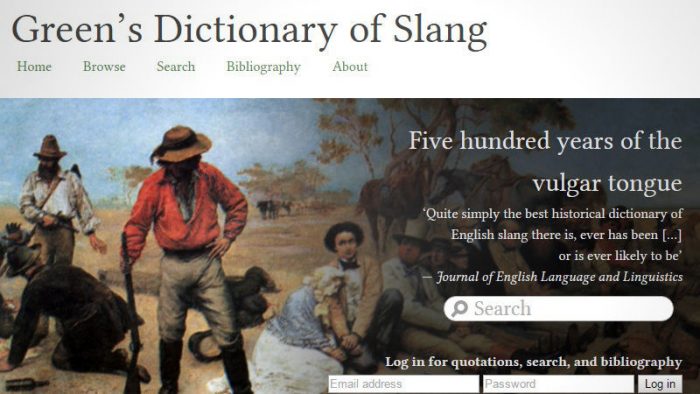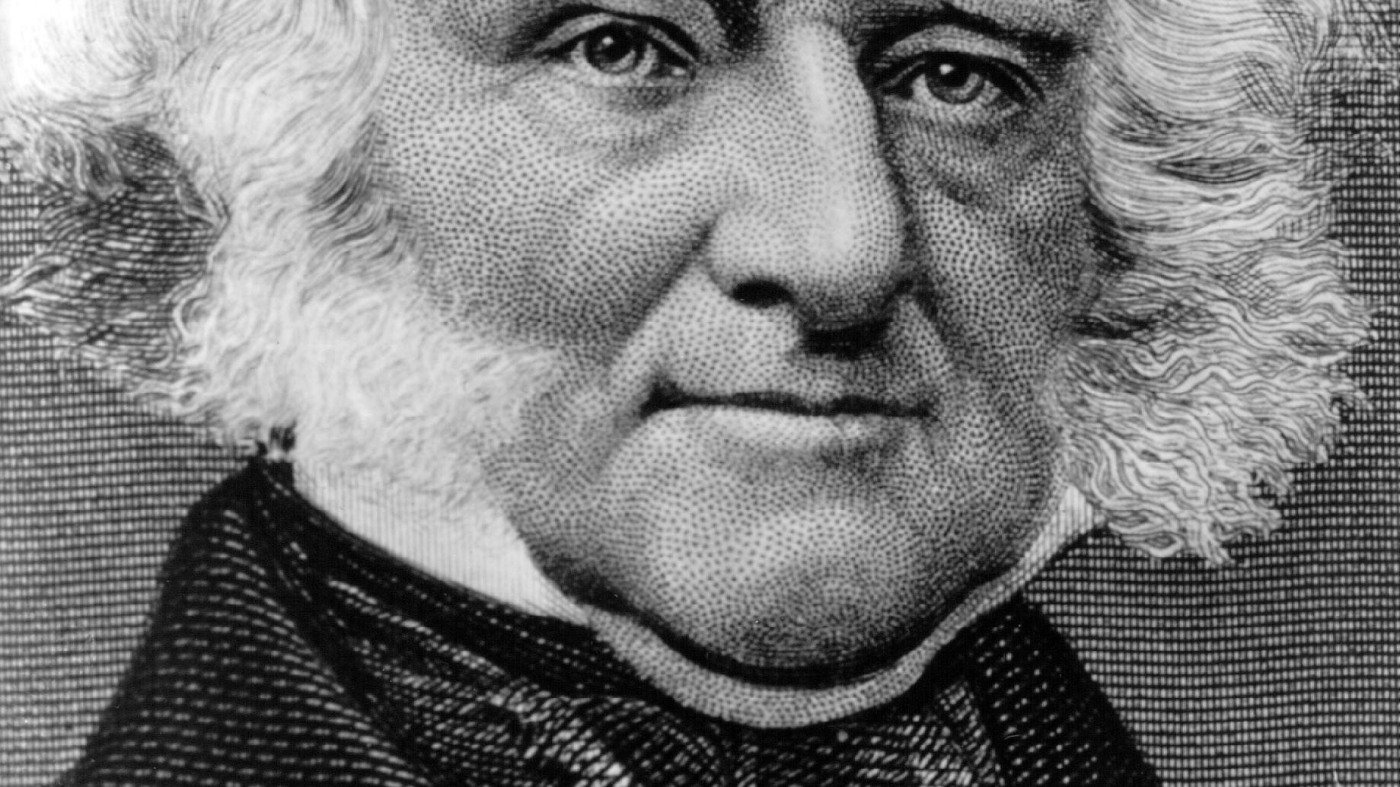#etymology
#etymology
[ follow ]
#social-media #language #slang #language-change #history #thanksgiving #linguistics #literary-history #carnival #alaaf
fromPsychology Today
2 weeks agoPresidential Words for Presidents Day
From George Washington's first presidential "administration" to Donald Trump's promises to cut taxes "bigly," U.S. presidents have played a big role in shaping the direction of the country, including the words we use to talk about everything from national politics to everyday objects and actions.
US politics
fromFortune
1 month agoIn the AI economy, the 'weirdness premium' will set you apart. Lean into it, says expert on tech change economics | Fortune
The weirdest thing of all in economics, says Brandeis University Economics Professor Benjamin Shiller, is that weirdness is closely tied to fate in the age of artificial intelligence (AI). The weirder you are, he tells Fortune, the better off you'll be. In his new book " AI Economics: How Technology Transforms Jobs, Markets, Life, and Our Future," Shiller, argues that the more bizarre your job, the less likely that AI will take it.
Artificial intelligence
fromwww.npr.org
1 month agoThe story of 'synergy,' the word we love to hate
Stop for a second, if you have bandwidth, because there's a word we'd like to flag: synergy. It sounds like it means something good, but it's unclear exactly what. It's something your bosses might say. There's pretty much a 0% chance you've said "synergy" in casual conversation. "It's the ultimate buzzword. It's the one that everybody thinks of when they think of business jargon," says Erica Brozovsky, a sociolinguist who hosts the PBS series Otherwords.
Philosophy
fromwww.npr.org
3 months agoHow the turkey trotted its way onto our Thanksgiving tables and into our lexicon
In the English language, the turkey gets kind of a tough break. Talking turkey requires serious honesty and speaking harsh truths. Going cold turkey is, often, an onerous way of quitting something completely and suddenly. Being a turkey is a rude zinger thrown at movie and theatrical flops, as well as unpleasant, failure-prone people. Yet, in the culinary world, the turkey looms large, particularly during November.
History
fromwww.npr.org
3 months agoFriendsgiving 101: A history of the made-up holiday and how to celebrate it
Friendsgiving is exactly what it sounds like: A gathering close to the date of Thanksgiving, starring many of its starchy staples, usually served potluck-style, with friends instead of relatives. Think fewer dinner-table political debates, less travel time, turkey optional (more on that later). "There are your friends, and there's Thanksgiving," says Emily Brewster, a senior editor at Merriam-Webster. "It's a great example of a word that is just an excellent candidate for adoption as soon as someone thought of it."
Arts
fromLos Angeles Times
4 months agoSpiced Mexican Hot Chocolate
The etymology of chocolate is via Spanish via Nahuatl - xocólatl combines xococ for sour, atl for water, owing to the bitterness of its earliest uses for what was once an elegant drink in the royal courts of ancient Mexico. Its export to Europe and the passing of centuries made "hot chocolate" a milk-derived sweet drink, warmed, though in Indigenous communities in Mexico, it's still
Cooking
fromMedievalists.net
4 months agoBefore the Holy Grail: The Original Meaning of the Medieval 'Graal' - Medievalists.net
When most people today hear the word Grail, they picture a glittering chalice, the Holy Grail of Christian legend, often imagined as the cup of Christ at the Last Supper or the vessel that caught his blood at the Crucifixion. Yet in its earliest literary appearances the graal was nothing of the sort. Far from being a holy chalice, it was a large, ordinary serving dish - a domestic object brought at mealtime in the court of the mysterious Fisher King.
History
fromwww.npr.org
4 months agoPumpkin: A favorite sign of fall, with a bit of shady history
Headlines about the arrival of pumpkin spice lattes signal summer's end. And soon after the last bites of pumpkin pie at the Thanksgiving table, we turn to plans for winter holidays. In between, jack-o'-lanterns are the stars of Halloween. The seasonal gourds also evoke a romanticized ideal of simpler times, according to Cindy Ott, author of Pumpkin: The Curious History of an American Icon.
Food & drink
fromwww.npr.org
5 months agoLove pumpkin spice lattes? Learn some of its spicy history
"For a long, long time, spicy meant exactly what it is supposed to be: that which is containing spice, or redolent of spice," Anatoly Liberman, a linguist at the University of Minnesota. But it was around the 19th century, that records show people started to use spicy in other less literal ways, he said. It can also refer to "racy" or "engagingly provocative" in reference to scandalous gossip or anything tantalizing.
US news
fromTasting Table
5 months agoThis Is The Only Acceptable Name For The End Of A Bread Loaf - Tasting Table
And right there, at the very end of the loaf, facing you as you look in the bag, is...what? Is that the end of the loaf? The butt? The crust? The answer is none of those. It's the heel - the heel of the bread. It's OK if you used to call it something else, but heel is the correct term.
Food & drink
fromMedievalists.net
5 months ago20 Phrases that Originated in the Middle Ages - Medievalists.net
Many of the phrases we casually toss around today have surprisingly long histories, with roots that stretch back to the medieval world. From English law to Chaucer's poetry, from French allegories to Irish chronicles, these expressions reveal just how much of our everyday language was shaped by the Middle Ages. Here are 20 phrases that originated in the Middle Ages - and are still alive and well today.
History
fromWorld History Encyclopedia
5 months agoThe Meanings of Mjolnir: Thor's Hammer & More
In the extant myths of the Norse people and in the archaeological record alike, Mjölnir seems to have had several meanings. From its creation by dwarves to Bronze Age rock carvings, through the Christian conversion of Scandinavia to Thor's dressing as a bride after its theft by a giant, and into the mythic aftermath of Ragnarök, Mjölnir's symbolism reverberated through time.
History
fromDefector
7 months agoFatal Battles In Common Loons: A Subsequent Analysis | Defector
My ignorance of loons was such that when I first saw a loon while kayaking, I thought it was a duck. To my great shame, I went so far as to ask these two other kayakers who were also looking at the loon, "What kind of duck is that?" That is how I learned what loons looked like. This is also when I took the only photo of a loon I got the entire weekend.
Miscellaneous
[ Load more ]



